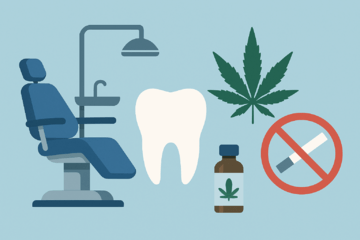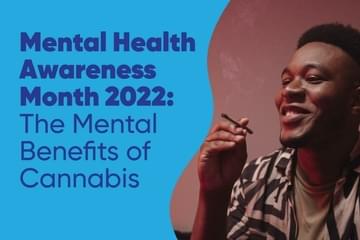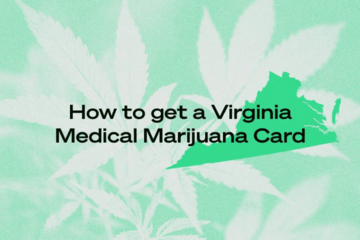
Cannabis and Carcinogens - What You Need to Know About Lung Health & Weed
Published on 1/4/22
Cannabis is becoming an increasingly popular medical treatment for many different conditions and situations, something that we're glad to see happen (especially on a national scale). However, just because there are a lot of medical benefits to cannabis doesn't mean we can ignore the health concerns of smoking. Can weed cause lung cancer? Is smokers cough simply a product of cigarettes? Let's dive into what we know about smoking cannabis and lung health to try to find an answer to a very common question: "Is smoking weed bad for you?"
The Medical Benefits of Cannabis
Because of its long-standing federally illegal status, there are not a lot of studies on the long-term medical benefits of cannabis. However, it is noted by professionals and touted by patients as having a lot of positive medical applications. It is likely most notably used to treat the adverse side effects of cancer treatments like chemotherapy, reduce symptoms of Post-Traumatic Stress Disorder (PTSD), reduce seizures, epileptic episodes, help manage chronic pain and reduce inflammation. In addition to all of these medical applications, cannabis is also known to:
- Ease the pain of multiple sclerosis and nerve pain
- Lessen tremors in Parkinson's disease
- Manage nausea and weight loss
- Treat side effects of glaucoma
- Reduce side effects of HIV such as wasting syndrome
- Reduce anxiety and depression
- Help with insomnia
This list is not entirely inclusive of everything cannabis is capable of (and there are many things cannabis may treat that we're yet unaware of). Still, it is an excellent preview of the promise cannabis has for various medical conditions and situations. This list also shows that cannabis' Schedule I categorization by the federal government that officially states it has no medical properties needs updating. That being said, just because there are many positives doesn't mean we can ignore the potential negative side effects of cannabis.
The Adverse Effects of Smoking Cannabis
 Unsplash
UnsplashSeveral health concerns arise when we consider the potential side effects of smoking cannabis. Studies show that marijuana contains more carcinogenic compounds than cigarettes. Sounds concerning, right? Well, the verdict is still out. While it's true that cannabis has more carcinogenic compounds, studies show that aspects of cannabis reduce the activation of carcinogens where tobacco increases activation. The same studies have shown that, where nicotine increases tumor growth, cannabis inhibits it. But most of the studies at this time have not allowed for significant long-term observation, and therefore sustained exposure to cannabis smoke cannot yet be compared to cigarette smoke. That being said, early studies claim that the current knowledge surrounding marijuana smoke indicates that the negative effects are not comparable to cigarette smoke.
Another major concern is an increased risk of chronic bronchitis brought upon by inflammation of the airways and increased airway resistance. This can also cause smokers cough. However, studies only show legitimate concern in high-use patients - low levels of marijuana exposure over time have not resulted in a concerning correlation with bronchitis. Again, more studies are needed.
However, smoking cannabis is still smoking at the end of the day. When you smoke cannabis, you inhale smoke into your lungs which can cause physical damage. However, the answer to "can weed cause lung cancer" remains unclear. Studies that have shown an increased incidence of lung cancer in people who smoke cannabis have also found that the association disappears when the cofounding use of cigarettes is accounted for. That being said, until more long-term studies are conducted, we can't answer the question, "does marijuana cause cancer."
Why Some States Ban Smokeable Flower
 Unsplash
UnsplashYou may look at these negative effects of smoking cannabis and draw parallels to certain states that have made smokable cannabis illegal (i.e., Louisiana and Indiana). Unfortunately, smokable cannabis has been made illegal because it's challenging to differentiate by smell and flavor the difference between hemp-derived cannabis and marijuana-derived cannabis. THC is federally illegal, but CBD and other cannabinoids derived from hemp plants are federally legal. CBD and THC provide different, although often overlapping, medical benefits. In states where THC is illegal, smokable hemp-based products have been illegalized because law enforcement cannot differentiate between the two. Illegal smokable flower is a product of cultural taboos and political policy, not health concerns.
Safer Ways to Consume Cannabis
 Unsplash
UnsplashSince the primary concern about smoking cannabis is the inhalation of smoke into the lungs, we're excited to note that there are many ways to consume marijuana. Smoking cannabis is the traditional consumption method (images of joints and bongs immediately come to mind). Still, other methods have become increasingly available and popular as legalization has taken a stronger foothold over the last decade. If you don't want to risk the harmful benefits of smoking cannabis, your other options include edibles and tinctures. You could also use a vape, which is thought to be less harmful than traditional smoking methods, but the verdict is still out, and initial studies show they may be more harmful than initially thought.
Fortunately, edibles are a great alternative that offer a lot of variety. Edibles include gummies, mints, brownies, cookies, candy, seltzers - so long as it's food and/or drink that has been appropriately infused with cannabis, it's called an edible. While edibles generally provide a more intense full-body high that takes longer to hit and lasts longer, they still definitely get you high and provide many of the same medical benefits. Plus, you get THC and other cannabinoids without the carcinogens and harmful smoke in your lungs. With edibles, you don't have to worry about the unresolved concerns about cannabis and cancer. The same goes for sublingual (under the tongue) cannabis products, seltzers, and tinctures (concentrated cannabis extracts).
What are your thoughts about smoking cannabis? Do you smoke or do you prefer other methods like sublingual and edibles? Please let us know in the comments below.


















